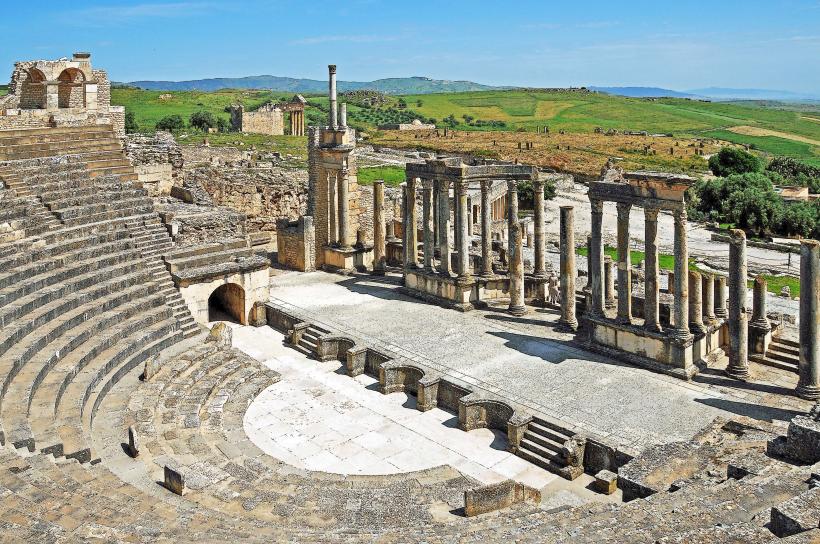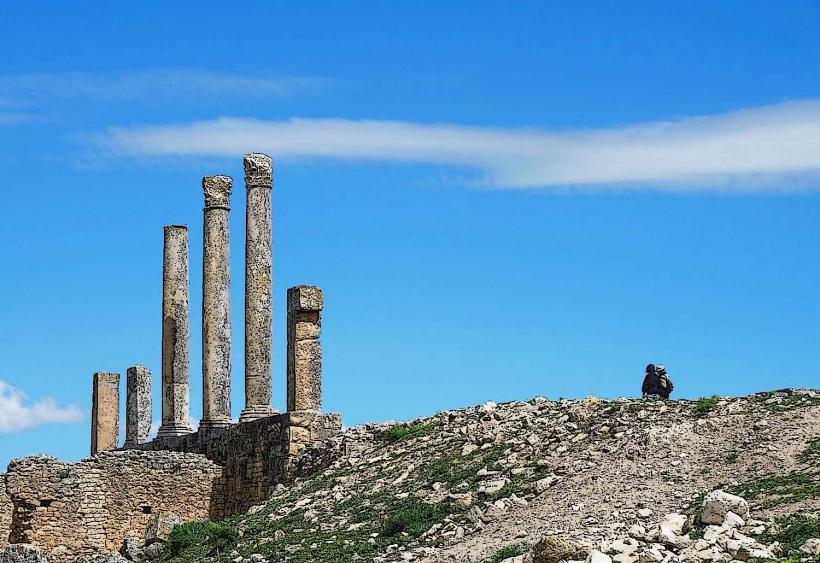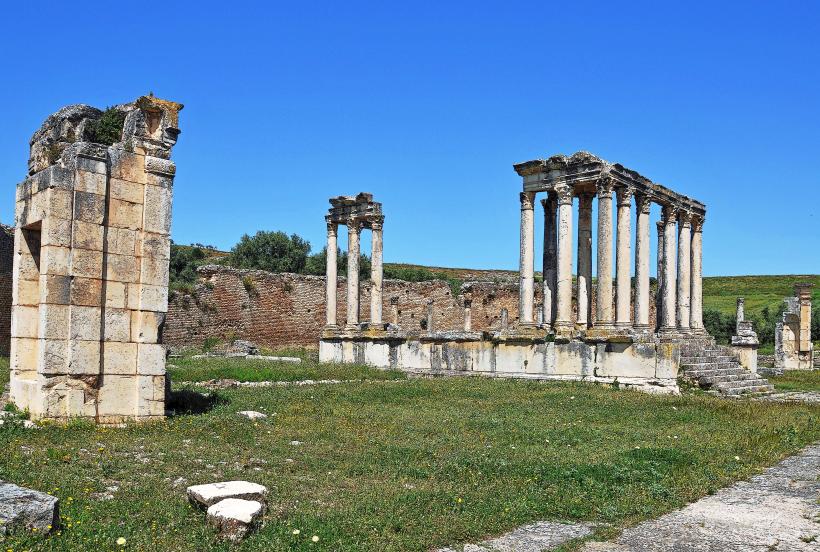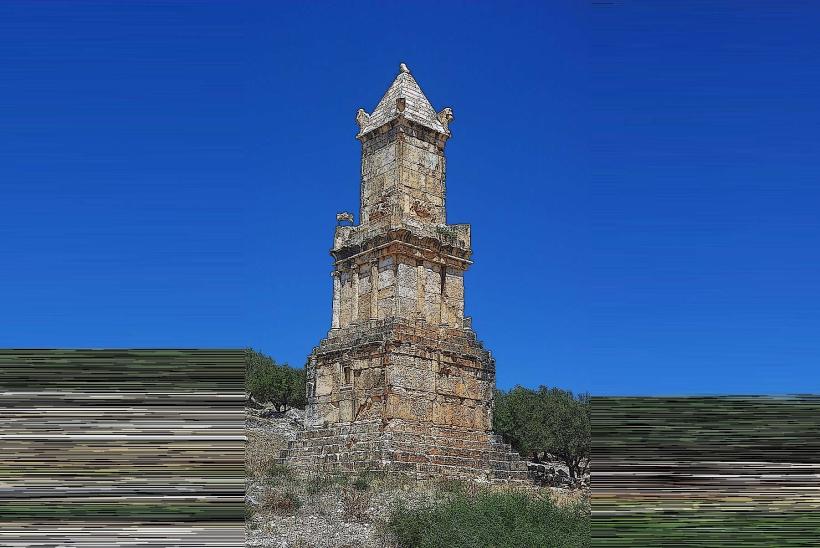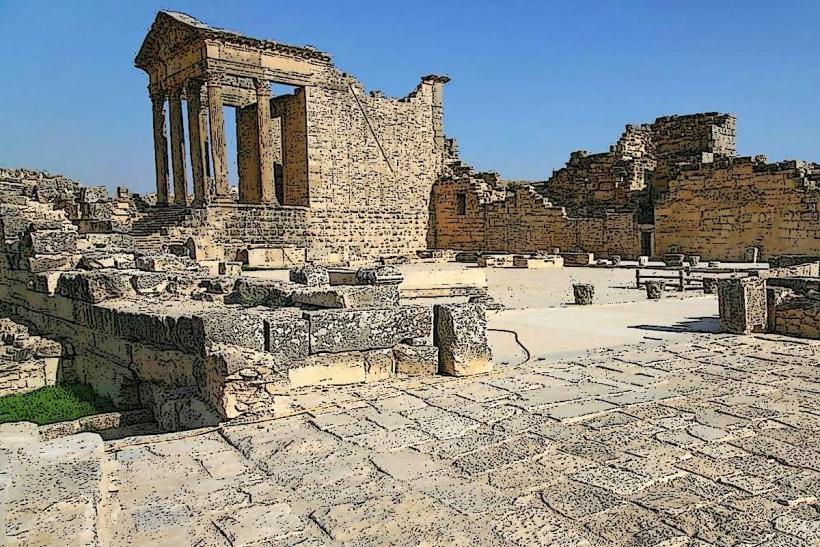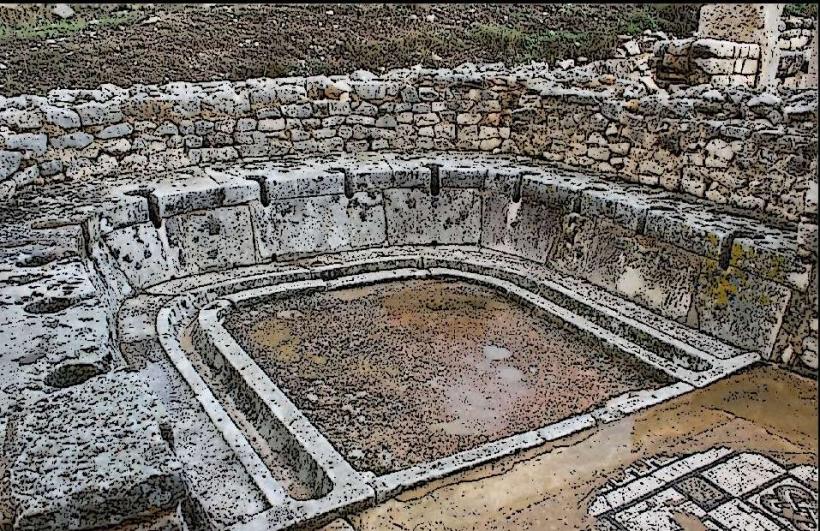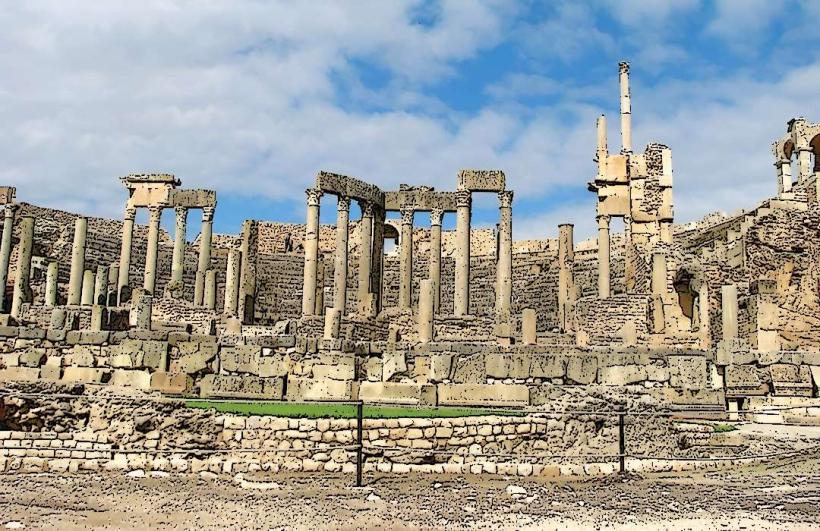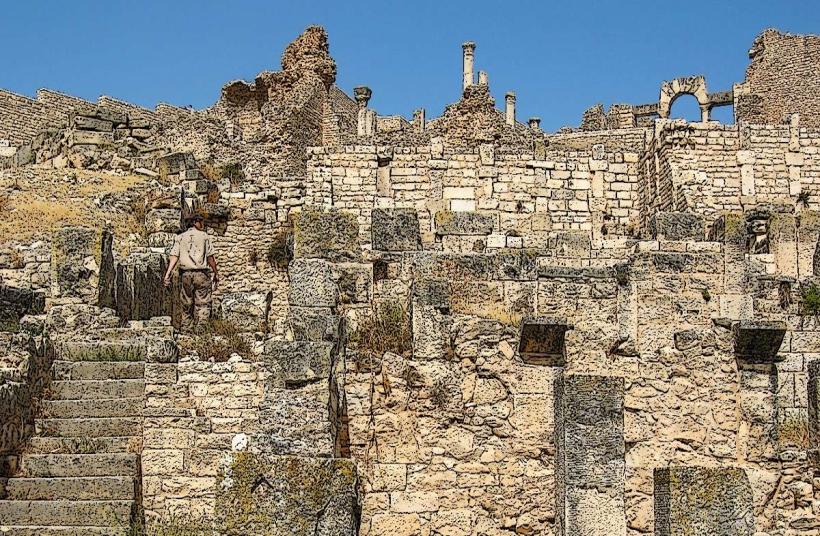Information
Landmark: Capitol of DouggaCity: Dougga
Country: Tunisia
Continent: Africa
Capitol of Dougga, Dougga, Tunisia, Africa
Overview
Location: Dougga (Thugga), Tunisia - a UNESCO World Heritage Site.
Built: Around 166 CE, during the reign of Emperor Marcus Aurelius and Lucius Verus.
Function: Roman Capitoline Temple, dedicated to the three chief Roman deities: Jupiter (king of the gods), Juno (his consort), and Minerva (goddess of wisdom and war).
Architectural Features
1. Platform and Podium
The temple stands on a massive raised podium, approximately 3.5 meters high.
The front of the podium is accessed via a central staircase.
The podium elevates the structure, signifying its importance and dominance over the forum.
2. Pronaos (Porch)
A deep front portico supported by six fluted Corinthian columns (hexastyle).
These columns are tall and ornately decorated, with acanthus-leaf capitals, typical of the Corinthian order.
The porch leads to the cella (inner chamber) through a central doorway.
3. Cella (Sanctuary)
The inner sanctum was divided into three niches-each one housing a statue of a member of the Capitoline Triad:
Jupiter in the center (the largest and most prominent)
Juno on one side
Minerva on the other
The cella walls were richly decorated, likely with marble and frescoes, though much of this has not survived.
4. Roof and Pediment
The triangular pediment is still largely intact.
A bas-relief in the pediment depicts a scene of Jupiter, possibly enthroned.
The roof was pitched, typical of Roman temples, and likely covered with terracotta or marble tiles.
5. Inscriptions
The dedicatory inscription on the architrave credits the construction to Lucius Marcius Simplex, a local benefactor and Roman official, who funded it from his own wealth.
The inscription also acknowledges the imperial family, a common feature in Roman temples to assert loyalty to Rome.
Cultural and Religious Significance
The Capitol symbolized the Romanization of Dougga, merging local Berber culture with Roman imperial religion and architecture.
It served both religious and political functions, reinforcing the authority of the emperor and the Roman state.
The temple overlooked the forum, acting as a centerpiece for civic and religious life.
Preservation and Importance
The Capitol of Dougga is one of the best-preserved Roman temples in North Africa.
Its integrity provides insight into Roman provincial architecture and city planning.
The preservation of the podium, columns, and pediment makes it a key tourist and scholarly site.

